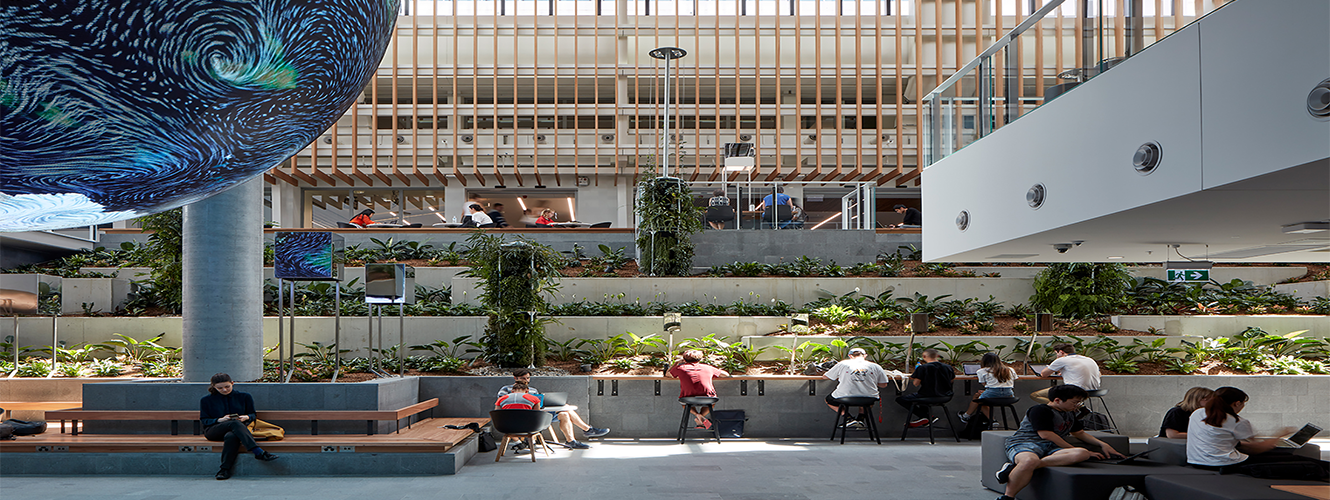AU25 Bachelor of Biomedical Science Queensland University of Technology
-
THÔNG TIN CHUNG
Biomedical scientists study how the body works, investigate how disease or injury interferes with normal function, and develop new treatment strategies that help restore function. Skilled in using a variety of cutting-edge technologies, biomedical scientists have been responsible for major health advances including the development of vaccines, antibiotics and stem cell therapies.
Customise your degree
Our flexible course design means you can shape your course to suit your interests and career aspirations. Choose your major area of study from the list below.
Anatomical sciences
Build practical skills in histology, medical image interpretation and organ identification. Examine real examples from QUT’s extensive skeletal collection, film library, pathology museum and human cadavers.
Cell and molecular biotechnology
Study the cellular and molecular mechanisms that operate in normal and diseased tissues. Undertake laboratory research projects in cancer biology, tissue engineering, human stem cells and systems biology.
Human biochemistry
Study the structure, function and properties of biomolecules and the molecular machinery that regulates the everyday workings of healthy cells and tissues, the molecular basis of diseases, and how diagnostic technologies and treatment strategies impact on biochemical processes in the cellular context.
Human physiology
Knowledge about the human body and how its systems work to maintain our health is essential to understanding the basis of disease, diagnostic technologies and treatments. Design and undertake a laboratory-based research project in human physiology.
Infection and immunity
Develop knowledge and understanding of infectious disease agents (bacteria, viruses, yeasts, fungi and parasites) and how they cause human disease, together with cutting-edge strategies of diagnosis, treatment, control and prevention.
-
CƠ HỘI NGHỀ NGHIỆP
Our graduates are employed locally, nationally and overseas and work for research institutes, universities, hospitals and biotechnology companies. There are increasing opportunities in consultancy, science journalism and companies involved in the development and marketing of new diagnostic and treatment products. This course also provides a solid grounding for you to pursue postgraduate study in medicine and other health disciplines.
Graduates who complete the clinical physiology minor as part of their studies may also work as a sleep scientist, neuroscientist, respiratory scientist or cardiac scientist.
This course also provides a solid grounding for students wishing to pursue postgraduate study in medicine and allied health. Postgraduate study provides graduates with the opportunity to pursue leadership and management roles in biomedical science, and the knowledge and skills to operate their own research lab and create new products.
Professional recognition
Depending on the units selected in final year, graduates will be eligible for membership into one or more of the following organisations: Australian Society for Medical Research, Australian and New Zealand Society for Cell and Developmental Biology, Australian Society for Biochemistry and Molecular Biology, Australian Association of Clinical Biochemists, Australian Society for Microbiology, Australian Neuroscience Society, The Endocrine Society of Australia, Society of Reproductive Biology, Australian and New Zealand Association of Clinical Anatomists, Australian and New Zealand Bone and Mineral Society, and Australian and New Zealand Forensic Science Society.
Possible careers
- Biochemist
- Biomedical Laboratory Officer
- Biomedical Science Researcher
- Biotechnology Scientist
- Cardiac and Vascular Scientist
- Health Researcher
- Laboratory Assistant
- Laboratory Technician
- Medical Equipment Sales
- Medicine (after further study)
- Neurophysiologist
- Reproductive Technician
- Respiratory Scientist
- Scientist
- Sleep Scientist
- ĐIỀU KIỆN ĐẦU VÀO
- ĐIỀU KIỆN NGÔN NGỮ
- HỌC BỔNG
- ĐỊA ĐIỂM
Tóm tắt
-
Phí ghi danh
0
-
Độ dài khoá học
3 năm
-
Kỳ nhập học
Tháng 2
Phí Cơ Bản
-
Loại Tiền
-
Học Phí
Trên năm -
Phí Sinh Hoạt
Trên năm -
Tổng







